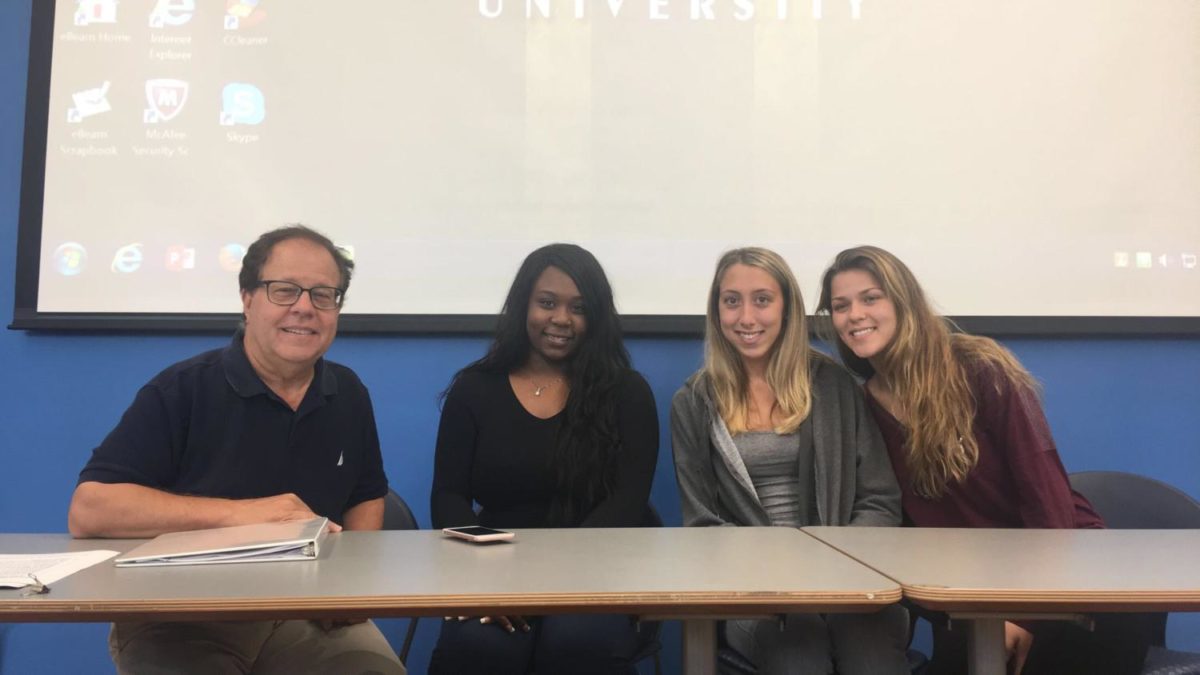Pace Celebrates Constitution Day
Students posing for a quick picture while asking Assemblyman Abinanti a few questions about his presentation
Assemblyman Tom Abinanti raised some politically controversial ideas on the Constitution and freedom of speech during The Constitution Day Celebration on Tuesday in the Kessel Multipurpose room.
The hour-long event was created by The Center for Community Action and Reasearch, or CCAR for short, in order to get students to get students to raise any questions they may have and to inform them of the limitations on the freedom of speech.
During the first fifteen minutes of the celebration, students were given a quiz containing questions from the citizenship test that are considered common knowledge for American citizens for the government.
“A lot of these questions are actually really hard and shouldn’t be considered common knowledge,” said Heather Novak, the Associate Director of CCAR.
After Assemblyman Abinanti was introduced, he explained that freedom of speech only becomes an issue to worry about when people see a cause that people care about.
“People who challenge that cause are considered bad people and can’t recognize that you must balance the freedom of speech with the individual right to avoid becoming harassment,” said Abinanti.
He began to further challenge common beliefs of students that live on college campuses and gave scenarios that they might not feel comfortable in. One of the scenarios that sparked a lot of controversial opinion was if white supremacists should be allowed to come in and have a discussion with students.
“Does a white supremacist have a right to speak at your campus? Would you allow that?” asked Abinanti.
A few students believed that although it isn’t likely that a white supremacist would be able to speak on campus because Pace is a private institution, they have every right to speak at a college campus.
However, other students believed that a white supremacist should not be able to speak if their presence is threatening other people’s lives.
Abinanti continued to raise curiosity by asking more controversial questions about freedom of speech.
“Does one speak differently to a woman? Do they speak differently to a stranger then they do to a friend? What about to a gay person? Or does it only matter how they perceive what I say? Does circumstance matter?” asked Abinanti.
The room fell silent for a few minutes while these questions were being asked. Abinanti asked the questions a few more times, however, many students avoided eye contact in order to show that they didn’t want to be picked on.
Abinanti believes that having this conversation at Pace and other college campuses is a necessity in order to teach students to think of all the aspects of issues before making a judgement.
“Our best citizens are educated citizens. We need students to understand their rights and responsibilities as citizens and this is the time for students to have discussions and ask questions,” said Abinanti.
Your donation supports independent, student-run journalism at Pace University. Support the Pace Chronicle to help cover publishing costs.

